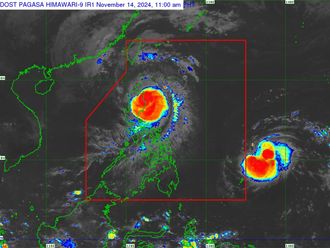Jeddah: Saudi Arabia warned Wednesday of the risks of a civil war in Iraq with unpredictable consequences for the region, after militants seized large areas from government forces.
The unrest in Iraq “carries warning signs of a civil war with unpredictable consequences for the region,” Foreign Minister Prince Saud Al Faisal said at the opening of an Islamic bloc meeting in the Red Sea city of Jeddah.
Prince Saud renewed Saudi accusations that “sectarian policies of exclusion” of Iraq’s Sunni Arab minority implemented by Prime Minister Nuri Al Maliki’s government were responsible for the violence.
This paved the way for countries with “bad intentions” towards Iraq “to go ahead with plots threatening its security, stability, national unity and sense of Arab identity,” Prince Saud said.
His remarks came as Iranian President Hassan Rouhani said his country would do whatever it takes to protect Shiite holy sites in Iraq against the Sunni militants.
The Iraqi government, which is close to Tehran, has accused Saudi Arabia of financing the militants.
“We hold (Saudi Arabia) responsible for what these groups are receiving in terms of financial and moral support,” it said.
Iraq was represented at the meeting of the 57-nation Organisation of Islamic Cooperation by Foreign Minister Hoshyar Zebari, a Sunni Kurd.
Prince Saud said the three-year-old civil war in neighbouring Syria had helped create the “climate” for “internal unrest” in Iraq.
He said that the conflict, which has killed more than 160,000 people, had “taken a turn to the worse” following the breakdown of UN-brokered peace talks in Geneva in February.
Saudi Arabia has blamed the Tehran-backed Damascus government for the collapse of the talks.
Their failure had led to an “escalation in the violence and genocide carried out by the Syrian regime against its own people” and “diminished chances for a political solution,” Prince Saud said.
He called for Syrians to be provided with the means “to defend themselves” and warned that the conflict was “prone to further deterioration” as long as the international community failed to take “a decisive step.”











